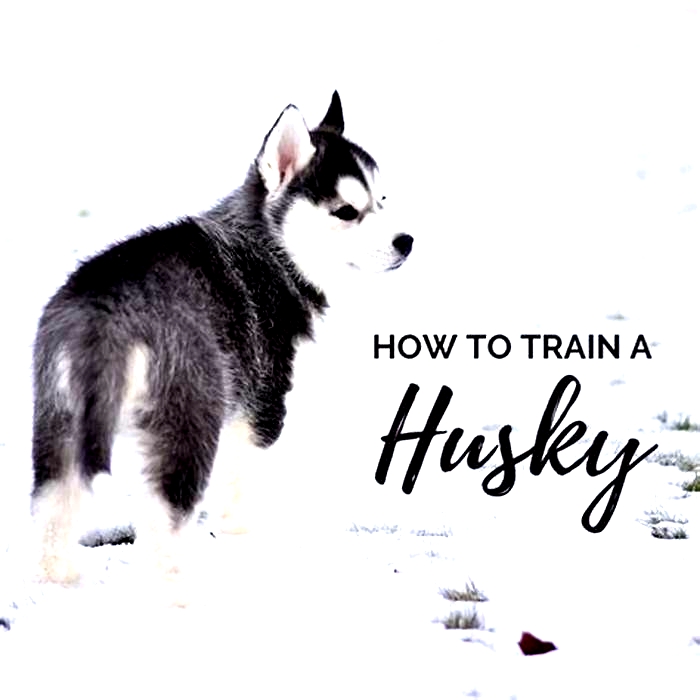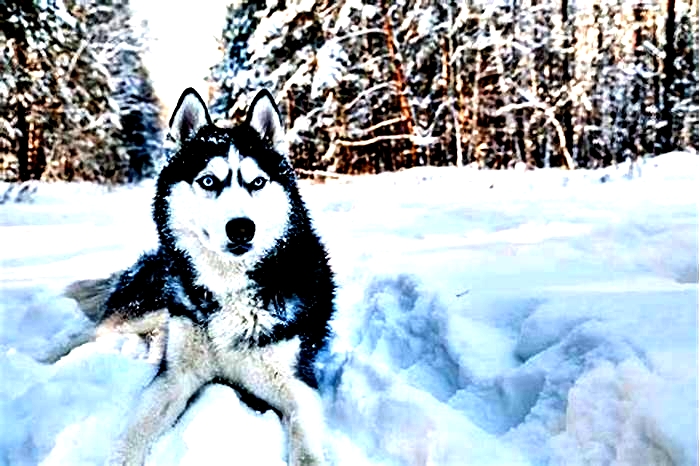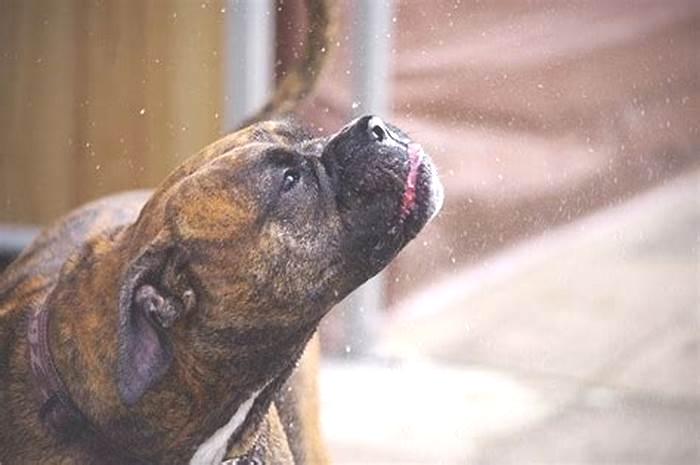Are Boxers difficult to train

Are Boxer Dogs Easy to Train?
Well-trained boxer dogs can make wonderful family pets. It depends, though, if you can provide your dog the proper training it needs. Keep in mind that you need to control their temperament when training.
Then again, are boxer dogs easy to train?
When young, boxers tend to be rowdy which is why it can be challenging to handle them.Its important to note that boxers love to jump and run around, especially in their puppy and young adult stages. It gets mellow when they reach the middle age, and they are calmer throughout adulthood.
Why Do Boxer Dogs Make Perfect Family Pets?
Companionship matters a lot in being family dogs, and boxers can provide that. Once grown, boxers are calm, sincere, and will be fine with any other pets in the house. Take note, though, that certain dogs can still be aggressive or dominant among others even in their adult stage.
Once you see a boxer chasing a cat or barking at the mailman, dont assume that every breed is the same. A dogs character can differ depending on how you raise it. When your boxer grows up with proper love and training, you can be sure this family pet will turn out fine.
How to Start Training Boxers

Dogs, in general, are loyal creatures. They will follow the hand that feeds them. As their owner, you have to establish yourself as the strong leader of the pack. Boxers need someone to look up to as their leader.
Be persuasive and active when you put your boxer dogs up for training. Looking back at the boxers history, they are strong-willed and are working dogs. These dogs can become stubborn; sometimes they will refuse to do anything. Yet, this happens only when you agitate them.
On good terms, boxers are proud and sensitive, and they are great watchdogs. These dogs have territorial and guarding instincts that you can develop more with proper training. Whenever they see something in the surroundings thats not right, they will bark out as a sign of warning.
Simple Ways to Ensure Successful Boxer Training
While training, consider socializing with your boxer. Interaction is the key! Always integrate recreational activities both for you and your dog. You can go walking or do other training activities.
On the other hand, if you leave your dog on its own, it may develop aggression problems. Things like chasing, excessive barking, and biting could surface when boxers fail to socialize well. In addition, dont forget that boxers need familiarity with their environment.
Be Familiar with Your Boxers Character
Boxers are guardians,but they need at least 40 minutes of exercise each day. These dogs are heavy with muscle, and they can be very stocky and powerful. Be aware of the right type of dog food to feed to keep them in top shape.

They are descendants of the bullenbeisser breed. These are crossbreeds of the bulldog, mastiff, and the Great Dane. Its also believed that the boxer is from the lineage of Danziger bullenbeisser and the Brabenter bullenbeisser. The breed made its way to the United States right after 1940.
Being playful is what defines a boxer. When contemplating whether boxer dogs are easy to train or not, always check its history. Know, though, that boxers are very intelligent and loyal to their owners and will guard their family against intruders.
Even though there are boxers that dont bark much as the others, they bark for a good reason. In some cases, you hear boxers make a growling noise, which is their way of talking. Never leave them alone because this can lead to destructive temperament.
Spend Extra Bonding Time with Your Boxer After Training
Being a leader figure to your boxer doesnt mean that you shouldnt show affection at all. Spending extra time with your dog matters. Assure him that youre there for him. Training can also tire your dogs. Having you, their best friend, to cheer them up makes all the difference.
Boxers value family, and its your job to make them feel like theyre part of yours. Dont let them feel neglected or unwanted because this can affect their bravado. Be there for your dog the way that they are there for you when you need them the most.
Make Sure to Track Your Pets Health Throughout the Training
A trip to the veterinarian will help when youre training boxers. When you notice certain health concerns appearing, contact the vet immediately. Look for experts that are familiar with boxers and let them examine your pet.
Boxers can also feel anxious which makes them unable to do tricks you want. Yet with the right help at the right time, they can overcome it and start feeling better. Dont forget to shower your pet with love and affectionthis will make the training a lot easier.
Are Boxers Easy To Train? No. But..
While Boxers arent necessarily easy-to-train dogs, its not through any lack of intelligence.
Your Boxer has the potential to excel at obedience tasks and can certainly learn to be a well-behaved member of the family.
Perhaps moreso than with less characterful dogs, training a Boxer is about finding methods that work for the breed, and for the individual.
When training a Boxer, you will want to make learning fun through the use of games, and always employ only positive reinforcement techniques.
Boxer Dog Trainability
Boxers were officially recognized as police dogs almost a century ago in Germany and served as military dogs in both world wars.
They also work as seeing eye dogs for the blind, search and rescue dogs, guard dogs and therapy dogs.
The diverse roles and responsibilities given to Boxers should tell you all you need to know about the trainability and versatility of the Boxer.
But you also need to see this:
Boxers have their own unique learning style.
If you dont appreciate it, you might mistake a Boxer for the class clown, not much in the smarts department.
That would be to mightily underestimate the Boxer.
Boxers have plenty of character traits that make them highly trainable, including but not limited to:
In truth, many of those positive traits that make Boxers trainable also have flipsides that can make training challenging.
For instance, the Boxers alertness and interest in everything that moves can manifest as distractibility when you are trying to keep your dog focussed on you.
Playfulness, too, can produce high levels of engagement when you hit upon a game your Boxer loves but it can also mean he flops himself down on the ground and throws his legs in the air the Boxer equivalent of a tantrum when youre trying to get him to walk politely to heel like all the other dogs in your obedience class.
Or your Boxer might come when called with unbelievable gusto except that it wasnt you who yelled Come! it was the owner beside you, instructing her own dog. Your Boxer was supposed to be sitting in a stay and waiting for YOUR go.
There are aspects of the Boxer temperament that out and out make them tricky to train, such as:
- Excitability
- A tendency to be headstrong or lets call it what it is stubborn
- An independent mind (although this can also be a positive)
Its sometimes said that Boxers from European lines tend to have more natural focus and training drive than American Boxers.
This is perhaps on account of the long tradition of Boxers as working dogs in Germany, versus Boxers as mostly companion animals and show dogs in the United States.
What It Takes To Train A Boxer
If your experience is with other breeds, you might find yourself at a loss when it comes to taming your Boxers wilder instincts.
Boxers are not Border Collies.
Boxer Dog Diaries is reader-supported. If you make a purchase via a link I share, I may receive a small commission, at no extra cost to you.
According to experienced Boxer trainer Karla Spitzer, author of The Everything Boxer Book, Boxers have a learning curve that can appear to flatline before spiking just when youre about to give up.
Though classified in the working dog category by the American Kennel Club, Boxers learn differently to the sporting and herding breeds.
They often like to observe and to think first and, for all their bluster in certain scenarios, tend to be cautious and even tentative in their approach to unfamiliar situations.
Successful training of a Boxer requires an owner to be:
- Persistent (things may take longer than with a German Shepherd)
- Patient
- Utterly consistent (give an inch and your Boxer will take a mile)
- Fair, kind and gentle (Boxers will shut down in response to harsh or punitive methods)
- Creative (your Boxer will bore quickly, so change it up before he grows tired of an exercise)
- In possession of a good sense of humor (but youre unlikely to own a Boxer if you dont like to laugh)
A group obedience class is a great idea for socializing a Boxer while teaching commands.
Make sure you select one that uses only positive reinforcement techniques and keeps dogs on leash.
Look for a trainer experienced with Boxers.
Get a good front-attaching harness.
Pitfalls To Avoid When Training A Boxer
Puppy School
Do your research before signing your pup up for puppy school.
Dont just go for the first program you come across because its offered by your local vets.
Many puppy schools amount to little more than a puppy free-for-all.
These kind of mosh-pit scenarios might be fun for owners and seem harmless at the time .. but this is not the kind of socialization you want to expose your Boxer to.
If this is how the sessions are run, it will be teaching your Boxer that other dogs mean GO CRAZY!
You will spend the next year trying to undo the bad behaviors your dog will pick up.
This kind of puppy school experience will be why your Boxer spots a dog from across the street and turns into a jumping lunatic, straining at the leash and threatening to run into traffic to get to the dog.
Far better to find a trainer who does things in a structured way.
Sure, you want your Boxer to get along with other dogs and have the chance to play.
But its important that your Boxer learn how to be calm around other dogs and how to be in proximity to them without having to interact.
Off-Leash Dog Parks
Dog parks come with all the problems of a poorly-run puppy socialization class .. and then some.
If you go to an off-leash dog park and havent yet witnessed or been involved in a dog fight then its only a matter of time.
If your Boxer is attacked or menaced by other dogs as a pup (or anytime) this can have disastrous effects on his own behavior and sow the seeds of aggression once hes an adult.
The lax supervision and wild play that can go on at dog parks is fraught with the risk of escalation to aggression.
Dog dynamics are complex and there is a lot that goes on beneath the level of human awareness.
Perhaps the greatest risk of all comes from the fact that dog parks are uncontrolled environments with constantly changing combinations of dogs including unknown dogs with potentially aggressive tendencies you have no way of knowing about until its too late.
Dog Day Care
A well-run daycare set up by professional dog behaviorists is a rare find.
Most facilities unfortunately combine the worst aspects of both puppy schools and off-leash dog parks, made riskier by the fact that owners are not present to witness what goes on, nor to intervene on behalf of their dogs.
Keep in mind that doggy daycare is a human invention that requires dogs to override their natural instincts.
It is not natural canine behavior for dogs to socialize with members of other packs.
Dogs in the wild live in tight family groups and are at pains to avoid interaction with dogs they dont know.
For the domestic dog, the pack is the human household.
Those other pooches at daycare? They are from other packs.
Mixing packs carries an in-built risk of conflict with all the associated consequences for behavior, anxiety and reactivity.
Consider dog daycare with caution.
7 Tips For How To Train Your Boxer
1. Start Early
Training begins the day you bring home your new puppy or your adult adopted Boxer.
Youll be teaching your Boxer how to behave even if its just by neglecting training and teaching him anything goes.
So you might as well be deliberate about it.
2. Proof The Behaviors
Pretty much every Boxer will understand what you mean and obey when he feels like it.
But your Boxer is not trained until he can deliver the desired behavior on cue, ALL of the time.
The often-overlooked final stage of teaching a behavior is proofing that behavior.
Proofing means practicing the command in increasingly difficult situations with more and more tempting distractions until you are certain your Boxer will obey NO MATTER WHAT.
This is when training becomes life saving.
A rock solid recall or Come command can be the difference between your dog being hit by a car or hurt in a dog fight and coming home safely.
3. Make It Fun
Some dogs are food-motivated, and Boxers certainly will work for treats.
But, overwhelmingly, Boxers are motivated by FUN.
Pay attention to what your Boxer enjoys most and find ways to work that into your training as the reward.
Boxers are great improvisors and the best toys are usually the ones they find and appropriate themselves.
Go with it!
4. Less Is More
Keep training sessions short and upbeat.
Its better to do many stints of just a few minutes throughout the day, rather than one long training session all at once.
Dogs attention spans are short, particularly when theyre puppies.
Always stop before your Boxer gets sick of it and starts to fail.
5. Be Gentle And Fair, Always
Never use harsh corrections or get angry with a Boxer.
For a start, it wont work.
Boxers are attuned to injustice and shut down in response to anything but positive reinforcement and reward-based training.
Secondly, Boxers are sensitive.
If you scold or physically reprimand your Boxer it will only upset your dog and damage the relationship between you.
If youre getting frustrated, end the session and come at it again when youre feeling positive towards your dog.
6. Never Stop
Its easy to fall into the trap of thinking your Boxer is trained by the time he reaches adulthood and knows the basic commands.
Training a Boxer is a lifelong process.
Your Boxer will benefit from constant refreshers to keep his skills sharp and his responses immediate.
Find interesting places to practice and keep adding new commands and tricks to keep you both entertained.
A side-benefit of training is that mental activity tires a dog out much faster than physical exercise.
As we all know, a tired Boxer is a well-behaved Boxer.
A Boxer that gets the chance to use his brain and continually learn is also a much happier, well-adjusted Boxer.
7. Dont Be Afraid To Go Back To Square One
Things happen.
Your training wont always go to plan.
Life gets in the way.
It is never too late to admit youve dropped the ball and go back to basics.
There is no behavioral problem that is not solvable with the right approach.
If necessary, engage a professional trainer.
Dont wait until things are so out of hand that your partner is threatening to rehome the dog.
Even without spending big bucks, there are plenty of good training resources online for you to access and put into action.
Helpful Tools For Training A Boxer
At a minimum, you are going to need:
Behaviors Your Boxer Puppy May Struggle To Learn
Boxer exuberance can make tasks that require impulse control and ignoring distractions challenging.
Your pup will probably need a lot of practice and effective instruction to learn:
Other behavioral issues commonly encountered by Boxer owners include:
Occasionally, when socialization has been less than adequate, owners find their Boxers can develop:
Things Your Boxer Will Learn Easily
On the upside, plenty of things come easily to Boxers.
Your Boxer generally wont experience problems with:
Conclusion
Training is a critical part of being a Boxer owner.
The world opens to a well-trained Boxer, as hell be welcome in many more places and included in more of your life.
Obedience will also keep your Boxer safe.
While it wont always be easy we well know a Boxer can have you in tears of frustration training your Boxer will strengthen the bond between you like nothing else can.
References
The Everything Boxer Book, Karla Spitzer, Adams Media, Avon, Massachusetts, 2006









